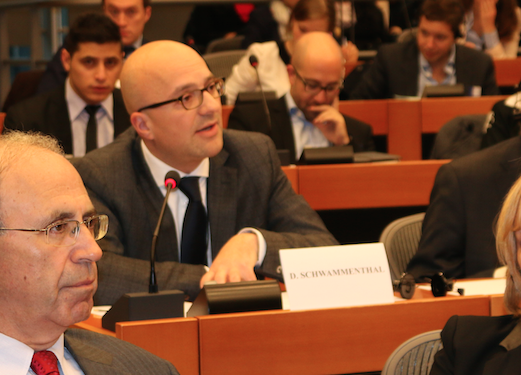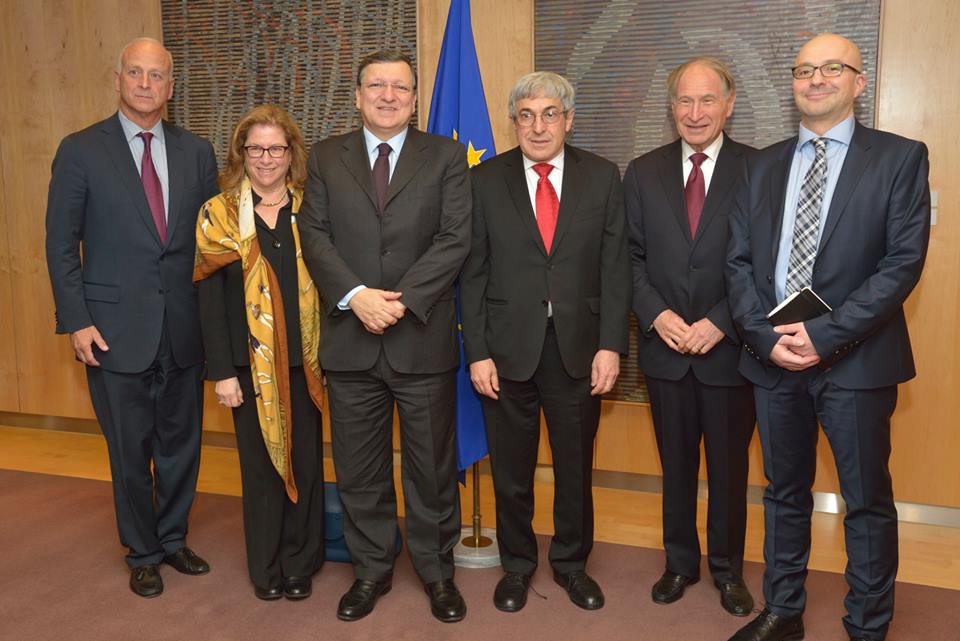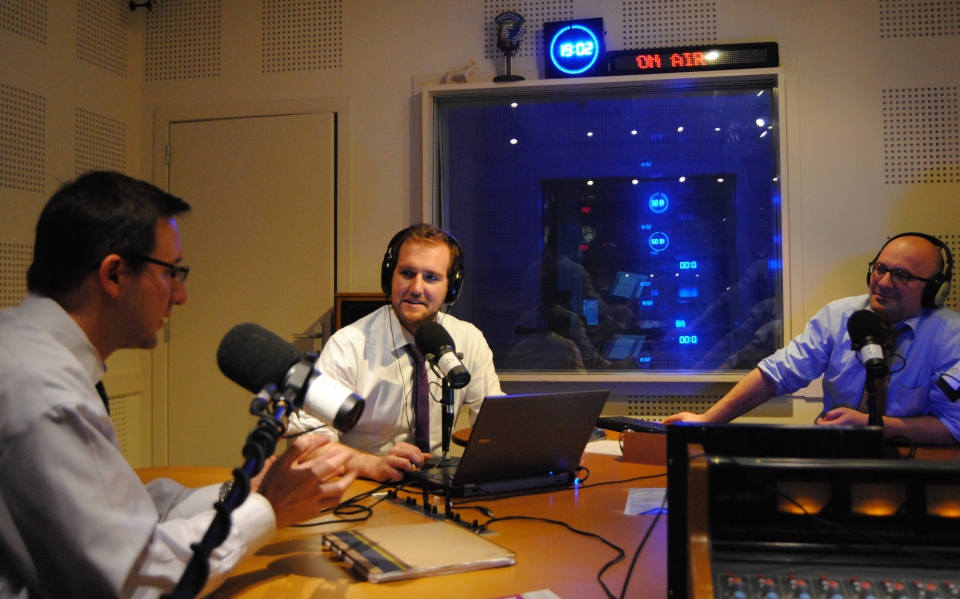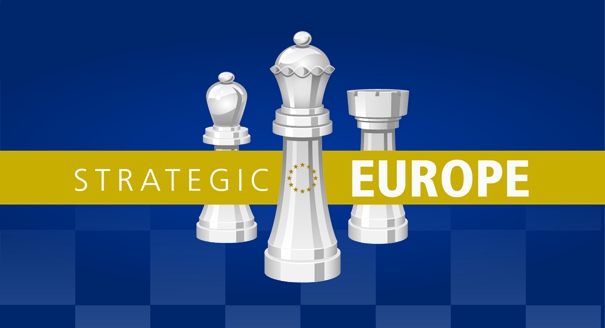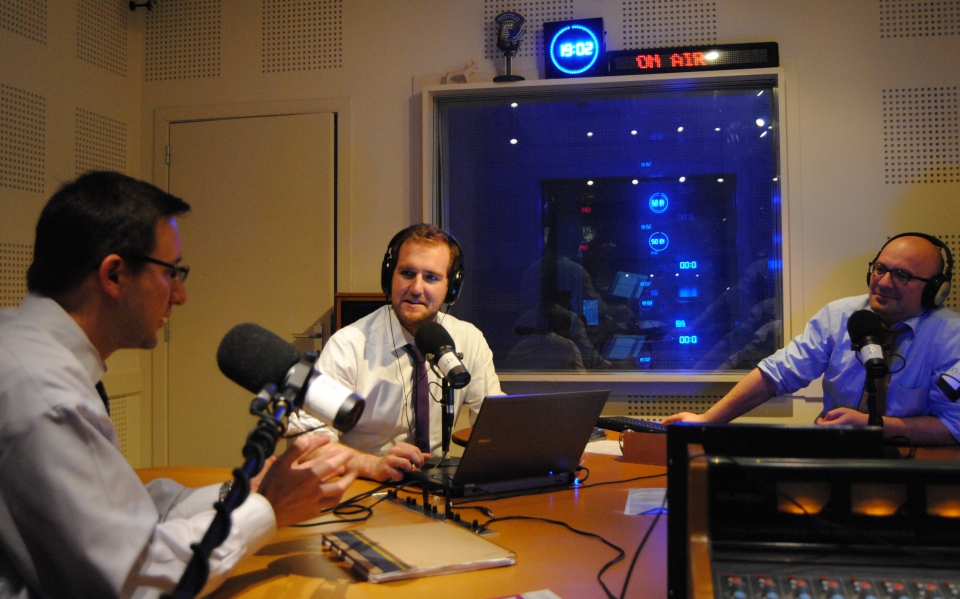Analysis
A Good Deal for Tehran
By Daniel Schwammenthal
The Wall Street Journal Europe
12 June 2012
After the usual games of brinkmanship and lowering expectations, Tehran just raised hopes again ahead of next week's round of nuclear talks in Moscow. On Monday, in a one-hour phone call with European Union High Representative Catherine Ashton, according to her office, Iranian nuclear negotiator Saeed Jalili agreed "to engage" on the proposals previously made by the major powers.
Before cheering, it's worth discussing the proposals' risks to Western security. In exchange for technical support and a few eased trade restrictions, the five permanent members of the U.N. Security Council plus Germany (P5+1) demand that Iran, as a first step, stop enriching uranium to 20% ship abroad its stockpile of 20% enriched uranium and close the underground Fordow enrichment facility.
Faithfully implemented, such a deal would certainly delay parts of Iran's enrichment program. But it would not stop Iran's march toward nuclear-weapons capabilities, and might even offer certain advantages for its atomic plans. Particularly troubling is that Iran would be allowed to keep and even grow its stockpile of 3.5% enriched uranium, only this time with de-facto international approval. That would be a significant political and, in the end, military victory for the regime. It would permit Iran to stay much closer to a bomb than the weapons-grade requirement of 90% enrichment suggests.
As Olli Heinonen, the former deputy director general of the International Atomic Energy Agency, has repeatedly pointed out, mastering low enrichment of 3.5% is 70% of the enrichment effort required for an atomic weapon. With 20% enriched uranium, you are 90% there. Using IAEA and official Iranian data, the Wisconsin Project on Nuclear Arms Control estimates that by mid-May, Iran had accumulated enough 3.5% to fuel—if further enriched—not one but at least four nuclear weapons. Iran would probably need three to 12 months to produce one bomb's worth of weapons-grade material from its 3.5% stockpile.
According to the Wisconsin Project, Iran has also around 100 kilograms of 20% enriched uranium about 140 kilograms are needed for a bomb's worth of weapons-grade material. Critically, the deal would do nothing to disrupt the other elements of the regime's nuclear program. As we know from the IAEA's November report, Iran has pursued every major area of nuclear-weapons development, including triggers, computer simulations of nuclear explosions, ballistic missiles and fitting them with nuclear warheads. Partly controlling Tehran's enrichment activities will not halt Iran's ability to move forward in those other areas. This is why U.N. Security Council Resolution 1929 of June 9, 2010 demands that Iran suspend all of its uranium enrichment activities, not just those below 20%, and requires full access for IAEA inspectors to suspected nuclear sites and the cessation of any illegal activity. If this was the right way forward in 2010, it certainly is the right way forward today.
Both the U.S. and the EU still agree, saying that the deal on the table is only an interim step until a comprehensive agreement is, they hope, reached. But since the time left to prevent Iran from going nuclear is probably measured in months, not years, any interim proposal at this late stage risks becoming final. Tehran could use the accord to make further progress on all elements for a nuclear weapon other than enriching to 20%.
Once ready, Tehran could then break out of the interim deal for good and quickly develop a nuclear weapon. Much of the media and many governments around the world, meanwhile, would likely hail Iran's acceptance of the proposed bargain as a major breakthrough. As a result, international and domestic pressure would probably rise, in Europe and the U.S., to delay or weaken fresh oil sanctions set to go into force July 1. Any appetite for additional economic and diplomatic measures, if Iran then fails to move to a comprehensive agreement, would probably fade.
The proposed deal threatens to make it more difficult to muster the international pressure required to confront Iran's nuclear program—at precisely the time when the oil embargo is set to tighten the screws further on an Iranian economy already weak from mismanagement, corruption, existing sanctions and falling oil prices. Compromising with Iranian nuclear negotiators inevitably means compromising on our security.
Mr. Schwammenthal is the director of the AJC Transatlantic Institute in Brussels.
